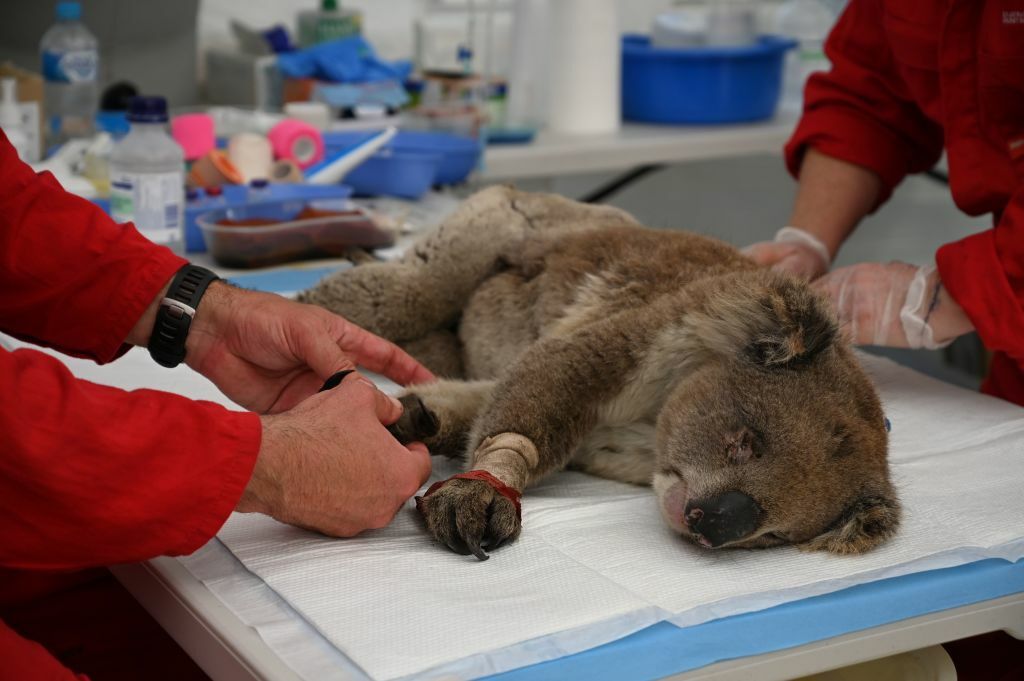Business
Koalas are endangered now, and climate change is a big reason why

Koalas are now officially endangered in some parts of Australia, with the country’s Threatened Species Scientific Committee upgrading them from their previous vulnerable status. Nobody should be surprised by this.
The Australian government announced today that koalas in New South Wales, Queensland, and the Australian Capital Territory will be considered endangered going forward, their reassessment being part of the country’s 2019-2020 bushfire response.
“The impact of prolonged drought, followed by the Black Summer bushfires, and the cumulative impacts of disease, urbanisation and habitat loss over the past 20 years have led to the advice,” said Minister for the Environment Sussan Ley.
The catastrophic 2019-2020 Australian bushfires dramatically brought the plight of koalas to the fore, but the animals were already in decline long before then. The now endangered species was initially listed as vulnerable 10 years ago in 2012, with the Australian government committing to developing a recovery plan for koalas by 2014. Unfortunately, said recovery plan did not eventuate and is now more than five years overdue, with the situation only getting worse.
The Black Summer fires did finally spark some action, and the Australian government is currently moving forward with developing and adopting a recovery plan. But it’s been a long time coming.
“The bushfires were the final straw, hitting at the heart of already struggling koala populations and critical habitat,” said International Fund for Animal Welfare’s Josey Sharrad last June.

Unfortunately, bushfires are the least of the koalas’ problems.
Credit: Peter Parks / AFP via Getty Images
Bushfires, land clearing, dog attacks, and rampant chlamydia are all factors contributing to Australia’s declining koala population. However, the most significant threat to koalas is the consistently hot, dry conditions caused by climate change.
With koala habitats drying and burning up, koalas are forced to compete with each other for the small amount of food that remains, leaving many of the marsupials to starve. Yet even if they do find eucalyptus leaves to eat, the foliage still may not provide everything they need for survival.
“[K]oalas typically get water from the leaves, but the leaves that are out there at the moment are very low on water, so koalas are getting dehydrated and falling down in the heat,” Currumbin Wildlife Hospital‘s senior vet Dr. Michael Pyne told Mashable in 2019.
The Australian government pledged $AU50 million toward protecting koalas last month, with Prime Minister Scott Morrison stating the money “will enhance the protection of koalas by restoring koala habitat, improving our understanding of koala populations, supporting training in koala treatment and care, and strengthening research into koala health outcomes.”
Sadly, all of this is simply delaying the koala’s inevitable extinction unless we address the root of the problem: climate change.
“None of us want to go through all of this effort to save them but then have them be released when the conditions aren’t good enough to sustain them out there,” said Pyne. “The concern is that these conditions becomes the new normal. If that becomes the new normal then they’re going to really struggle, and we’re going to gradually lose them.”
-

 Entertainment6 days ago
Entertainment6 days agoWhat’s new to streaming this week? (Jan. 17, 2025)
-

 Entertainment6 days ago
Entertainment6 days agoExplainer: Age-verification bills for porn and social media
-

 Entertainment5 days ago
Entertainment5 days agoIf TikTok is banned in the U.S., this is what it will look like for everyone else
-

 Entertainment5 days ago
Entertainment5 days ago‘Night Call’ review: A bad day on the job makes for a superb action movie
-

 Entertainment5 days ago
Entertainment5 days agoHow ‘Grand Theft Hamlet’ evolved from lockdown escape to Shakespearean success
-

 Entertainment5 days ago
Entertainment5 days ago‘September 5’ review: a blinkered, noncommittal thriller about an Olympic hostage crisis
-

 Entertainment5 days ago
Entertainment5 days ago‘Back in Action’ review: Cameron Diaz and Jamie Foxx team up for Gen X action-comedy
-

 Entertainment5 days ago
Entertainment5 days ago‘One of Them Days’ review: Keke Palmer and SZA are friendship goals
















